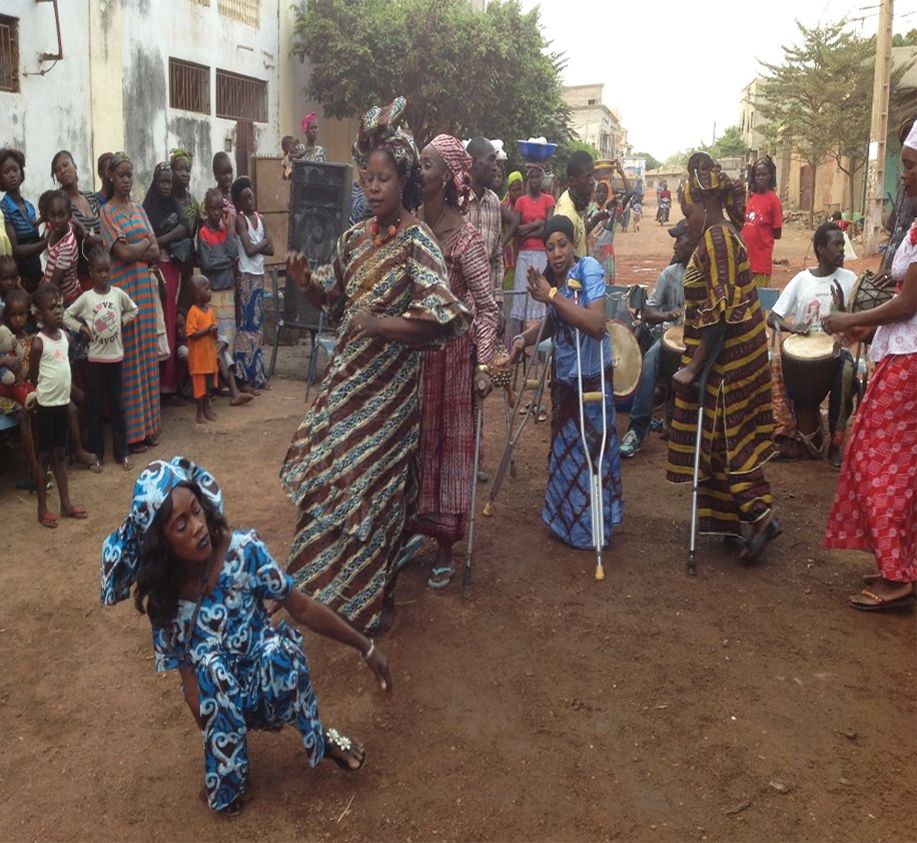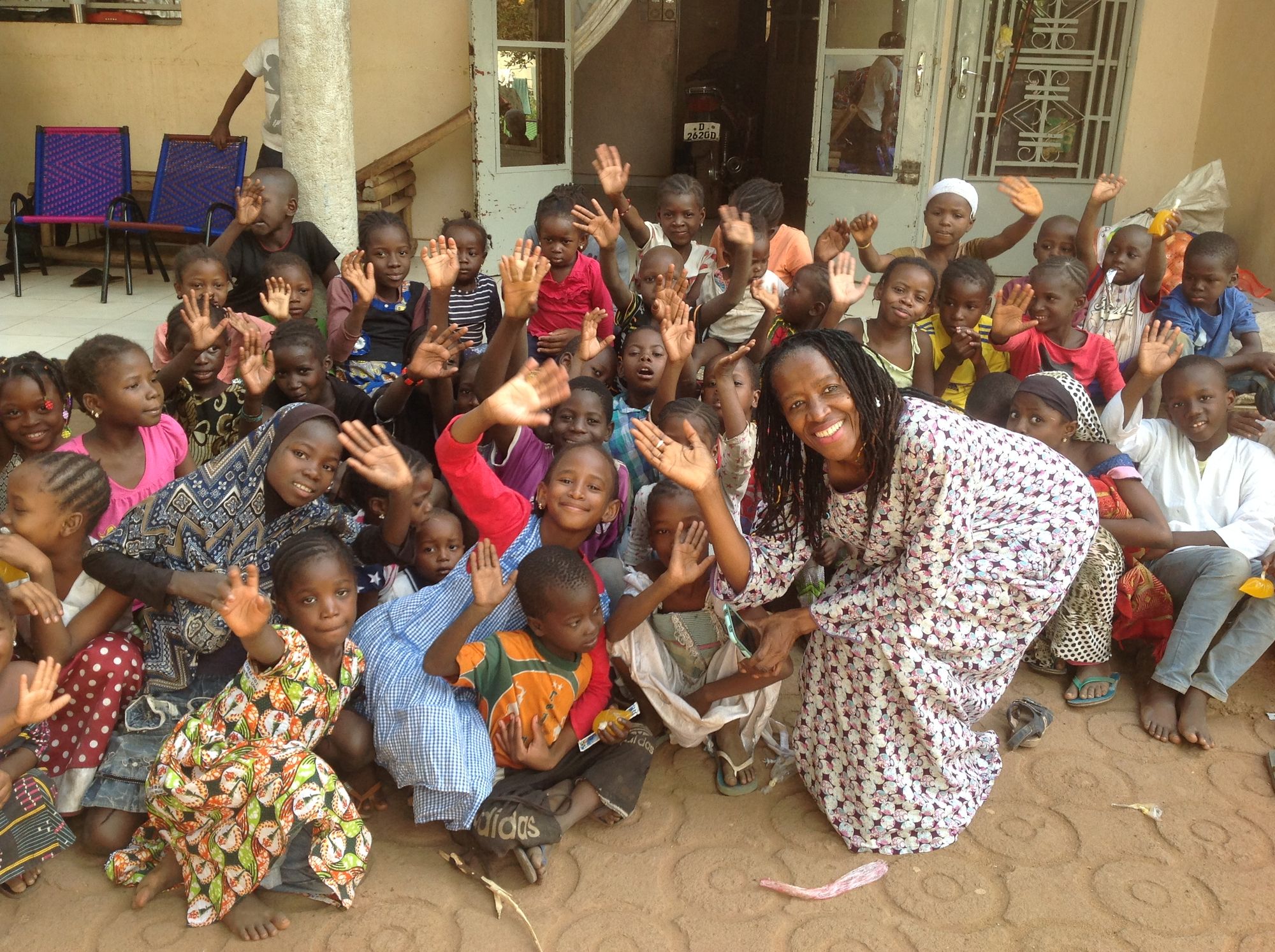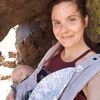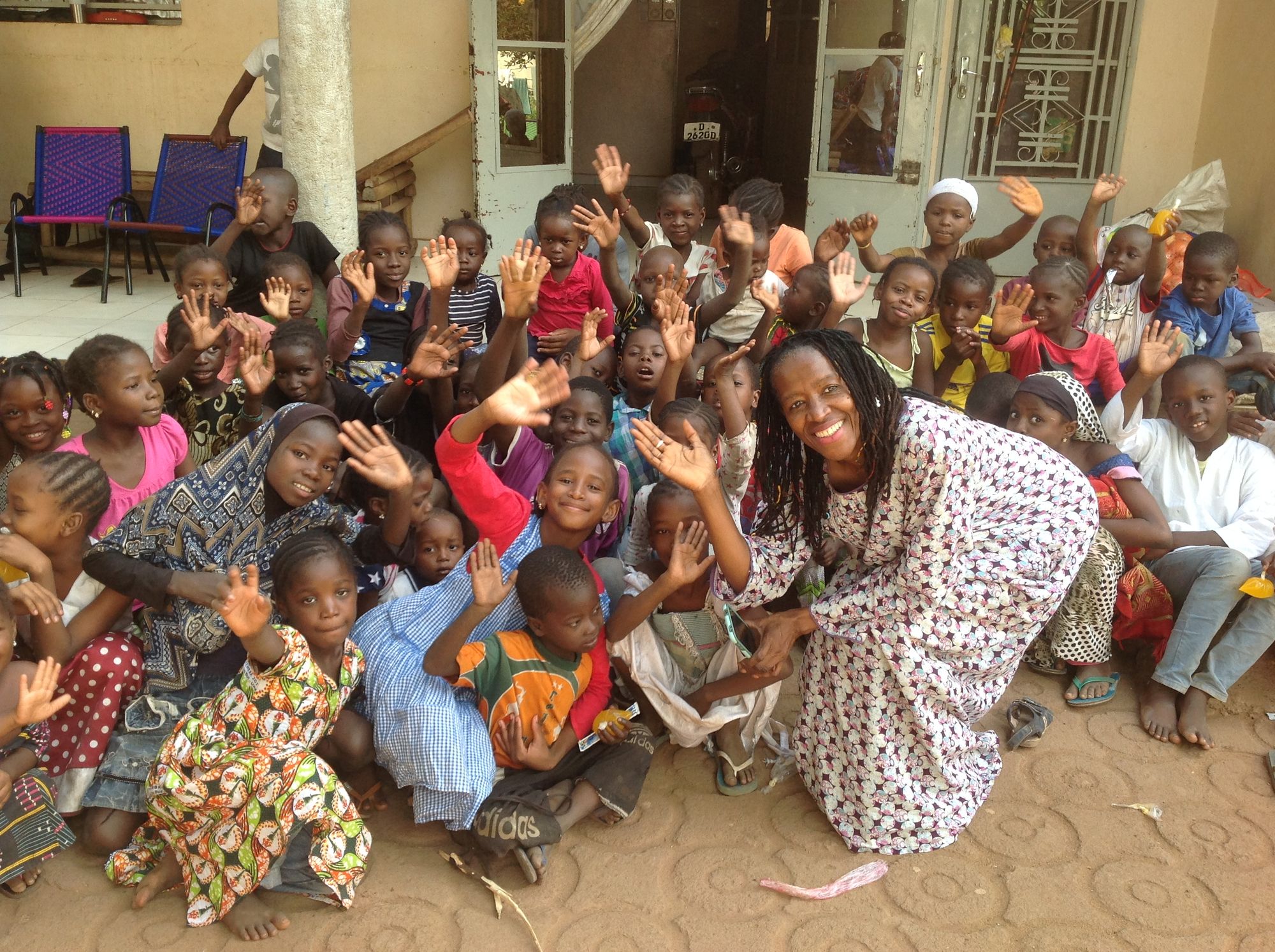Most of us are at least vaguely aware that belonging — the subjective feeling of deep connection with social groups, physical places, and individual and collective experiences — is a fundamental human need which can profoundly impact our mental, physical, social, economic, and behavioral wellbeing. Research suggests we developed a need for belonging in prehistoric times because cooperation and acceptance meant food, safety, shelter, and ultimately survival, whereas rejection from the group often meant death, as hunting, gathering and the labor of staying alive was too much for one person to shoulder alone. We can still see this biological imperative between parent and child. Newborns seek connection from their parents the moment they enter the world, because they rely on their caregiver to provide all of their biological needs. In today’s world, particularly in our individualistic society, it may be hard to recognize the ways in which we still rely on one another for physical survival — the processes and people involved in ensuring our access to food, shelter etc. — though they still exist. However, we can likely all recall a time in which we felt separated, othered, or isolated from our fellow humans, and the profound emotional toll that it took.
The pandemic had tremendous impacts to the mental health of many Amercians due to the physical isolation which translated to a feeling of separateness, and a loss of belonging. It also emphasized ways in which our country had been built on practices which excluded, mistreated, underrepresented, and oppressed scores of people, severely impeding their ability to experience a complete sense of belonging in their own communities. The collective impact felt through the effects of isolation during the pandemic should heighten our drive to bridge these chasms which have long existed for many Americans. It is our sense of belonging and its importance to us as a species that shapes the way our relationships with others, groups, and even whole communities function. An absence of belonging has negative and devastating effects on people, both physically and psychologically.
The United States was built on systems of cultural erasure and systemic exclusion, but we have the opportunity to face those tenants of our foundation and begin to build a way forward in which visibility, acceptance, inclusivity, and diversity are celebrated through opportunities for sharing, learning, and listening to the experiences of others. There is a clear connection between cultural identity and belonging — a connection which demonstrates the need for humans to feel rooted in their communities, to have inroads to the groups which they identify with, and to feel seen, validated, and accepted by those belonging to other groups.
The Tri-Cities is rich with cultural diversity, and there are many individuals and groups working tirelessly to build connections, and create an inclusive community here in the Tri-Cities. One such organization is the Tri-Cities Diversity and Inclusion Council. The council hosts an annual event called the Celebration of Community Diversity and Culture in which groups that might otherwise exist in isolation from one another have the opportunity to come together to learn and celebrate the beautiful diversity we enjoy in the Tri-Cities. This past summer, Fatima Traore was at the event teaching community members about West African dance. I had the pleasure of working with Fatima during the AACCES Art Show presented by DrewBoy Creative, and her knowledge, kindness, and passion for building community is evident in every interaction. I wanted to learn more about her experiences and her perspective on belonging and culture.
Fatima Traore was born in Bamako, Mali, in West Africa. She moved to the United States 26 years ago. Fatima is an integral part of our community who provides unwavering leadership and offers connection to all who know her. Fatima’s talents and knowledge are woven into the fabric of our community through her work as an economic development coordinator, a board member of the Dispute Resolution Center of the Tri-Cities, a graduate of Leadership Tri-Cities, and the former president and long time member of Riverside Rotary, among many, many other roles. Among these contributions, Fatima always generously shares her cultural knowledge and experiences through artwork, dance, and more. In addition to the work Fatima does here in the Tri-Cities, she is still incredibly active in her home country of Mali. Writing about the connection between culture and belonging would not be complete without talking to a woman who creates a sense of belonging with all who are lucky enough to know her, and enriches our community with her time, knowledge, and cultural contributions.
What was it like immersing yourself in an entirely new place, culture, and community? What are the challenges you have faced trying to find a sense of belonging in a new place?
I was born in Bamako, Mali in West Africa. I lived in France, Russia, and visited other countries before coming to the U.S. twenty-six years ago. I was exposed to different cultures at an early age, and I had only lived in big cities with more diverse communities before coming to the Tri-Cities.
Being from Africa, I thought there would be Africans in the Tri-Cities, but there weren’t many Africans here. I love African food! It was challenging to find an African restaurant or a store where I could buy African spices like in other, bigger U.S. cities. It was also challenging to find culturally diverse entertainment — things such as music, boutiques, and art.
I eventually met new friends from other countries while attending WSU, Tri-Cities. I was a member of the Multi-Cultural Committee and I learned more about new cultures. I also became a Rotarian and was able to do volunteer activities for local organizations.
You are such an integral part of our community, but, was it scary at first, laying roots down somewhere new?
Yes, it was scary even though I traveled before coming to the US. It was scary for me when I went to USSR, the former Soviet Union. I learned Russian in Odessa, Ukraine and studied for 5 years in Minsk, Belarus.
I always found a connection with my new place through learning about the new culture and telling them about my culture too.
Did you always know you would travel, or live in different places?
Yes, I am curious about other people. I like finding out what makes who they are and how I can relate to them.
What has helped you to stay connected to your culture?
I realized Tri-Cities is a small community, and when I first came here, I would visit my friends in Seattle and Portland to get African spices and to go to international cultural events. Since then, Tri-Cities has become one of the fastest growing areas in Washington State. It’s becoming more diverse with immigrants, refugees, and other cultures. There are now African and Middle Eastern stores. There is even an African beauty shop in Kennewick.
I came to the U.S. as an adult. I will always be connected to my roots no matter how long I live in the U.S. I am who I am first based on my Malian origin. Seven of my siblings still live in Mali and I talk to them often. I also go to my country every year. I feel like I have become a better person and more tolerant from being exposed to different cultures while maintaining my identity and my connection to my original culture.
Many people do not feel connected to their own culture, or feel they lack community. How can we address this?
Learning about diversity is very important. All cultures want to be represented and appreciated. It starts at homes, schools, and community events. People need socio-economic opportunities, healthcare, and other aspects of a community.
What was the impact of COVID-19 on culture and community?
COVID was a global health crisis, and the quarantine period was difficult for community-oriented cultures. My culture is social culture; we thrive on being with family and friends. Even though separation was necessary, it created a more difficult situation for some people who couldn’t handle the isolation. COVID created mental health issues, anxiety, economic crises, and other issues that are still impacting many cultures and communities, locally and internationally.
What does belonging mean to you, and how do you see people seeking belonging?
Belonging happens when someone starts feeling comfortable and happy in a particular group of people — they feel at home in their surroundings. The sense of belonging happens in a fuller, richer way when new people joining a new community are accepted by the new culture. Both parties should learn about where each other comes from, what makes them who they are, and how they can get the best out of each other. Belonging and acceptance must go both ways. It makes both parties more culturally rich.
People who settle down in different communities should learn about their new places and vice versa. I found out that getting involved in community activities helped me feel like I belong. After twenty-six years, I feel like Tri-Cities is my second home. I now have surrogate families and longtime friends! They all embraced me and they continue to make me feel I belong here!
How can we as a community seek to create more of a sense of belonging for people of all backgrounds and cultures?
Finding similarities is better than focusing on differences. Not feeling isolated and being represented are motivating and inviting to other groups to feel that they belong.
I saw this in my work in economic development. I administered different loan programs for business start-ups and expansions at Benton-Franklin Council of Governments for several years. Working on one of the programs, which was for women and minority entrepreneurs, I learned a lot about underserved communities in need of business loans. I did outreach activities and technical assistance for businesses in getting relief funding during the COVID-19 crisis, which was one of the most fulfilling aspects of my job. We were able to collaborate with the Tri-Cities Hispanic Chamber, as well as local commercial banks and other lending agencies. Economic development creates wealth from which many communities benefit. It leads to job creation, financial support for families, and a broadening of the tax base, which will be invested in other aspects of community development.
Supporting communities has to include the practical application of support as well as the ideological support.
In addition to the tireless work you put in here in the Tri-Cities to strengthen our community, you are still very involved in building community and opportunity in Mali. Can you share a little about the personal project you started ten years ago to help women in your home country?
I created a microcredit program for a local Malian group of women suffering from post-polio syndrome. Their disabilities are often emphasized more than their abilities, seriously limiting their educational, rehabilitative, and social opportunities. My microcredit ($200 per lady) helped several women start their microenterprises. The program empowered them and gave them confidence!

I had the pleasure of learning a bit about your mom when you shared her beautiful dresses for the AACCES Art Show last February. It sounds like she had a huge heart for building community and a sense of belonging as well, particularly for families and for children. Can you share more about that and the project you started in her honor?
I am the oldest of ten children. Growing up, my mother told all of us to get an education, and we all did. She was a teacher for forty-five years. She encouraged kids in our community to stay in school. Because most parents were not educated, they relied on my mother to help their kids with their education. She believed kids are our future and encouraged everybody to invest in early childhood education.
My mom was a giving person. She was a teacher for 45 years, a mentor, and a community project volunteer. My mother saw good in people and had a positive outlook on life. She touched and inspired many people.
She understood that children who go to preschool have a chance to excel academically more than those who don’t. After she retired from teaching, my mother continued to mentor poor neighborhood kids at home so her education work could continue. So to honor her, I created an early childhood education center in her name in Bamako, Mali: The Aminata Ouarike Diarra’s Daycare Center. There are thirty-five kids and two teachers.
Can you tell us more about the early childhood education center?
Mali is one of the poorest countries in the world. In Mali, less than 10% of children benefit from early childhood education programs. Children often start 1st grade without any kind of previous knowledge. There is a lack of infrastructure and educational materials, classrooms are overcrowded, and there aren't enough teachers. There is also gender discrimination to contend with, and many parents aren't educated, either, so they don’t know how to support their children. Kids who don’t go to school often end up doing child labor.

Why is it so important to have a center like this? How does the center strengthen the community?
The early childhood education center serves neighborhood kids from poor families from ages four to six years. Kids learn the alphabet, numbers, songs, and the names of different animals. They learn social and teamwork skills, while stimulating their cognitive development.
They also learn basic life skills, like handwashing and how to greet people. Increasing opportunities for early learning increases school readiness, meaning children arrive in primary school ready to learn and to do well.
Parents are encouraged to get involved more in their kids' education. Having educated children creates better opportunities for families, which makes better communities.
What would you like to see more of here in the Tri-Cities community that could strengthen cultural connection and support families in that way?
We could strengthen cultural connection in the Tri-Cities by developing culture and diversity programs in schools, involving all families and all communities in decision-making processes, creating cultural exchange programs with other countries, teaching different languages, reaching out to underserved communities, fostering equality, and working toward equity and justice for all!
If you would like to support The Aminata Ouarike Diarra’s Daycare Center, visit their GoFundMe page.
Ashleigh Rogers is a Tri-Cities artist who wears many hats. One of her latest projects is Looking Up: an investigation into how COVID-19 has changed our world, and uncovering the community’s vision for the future.


